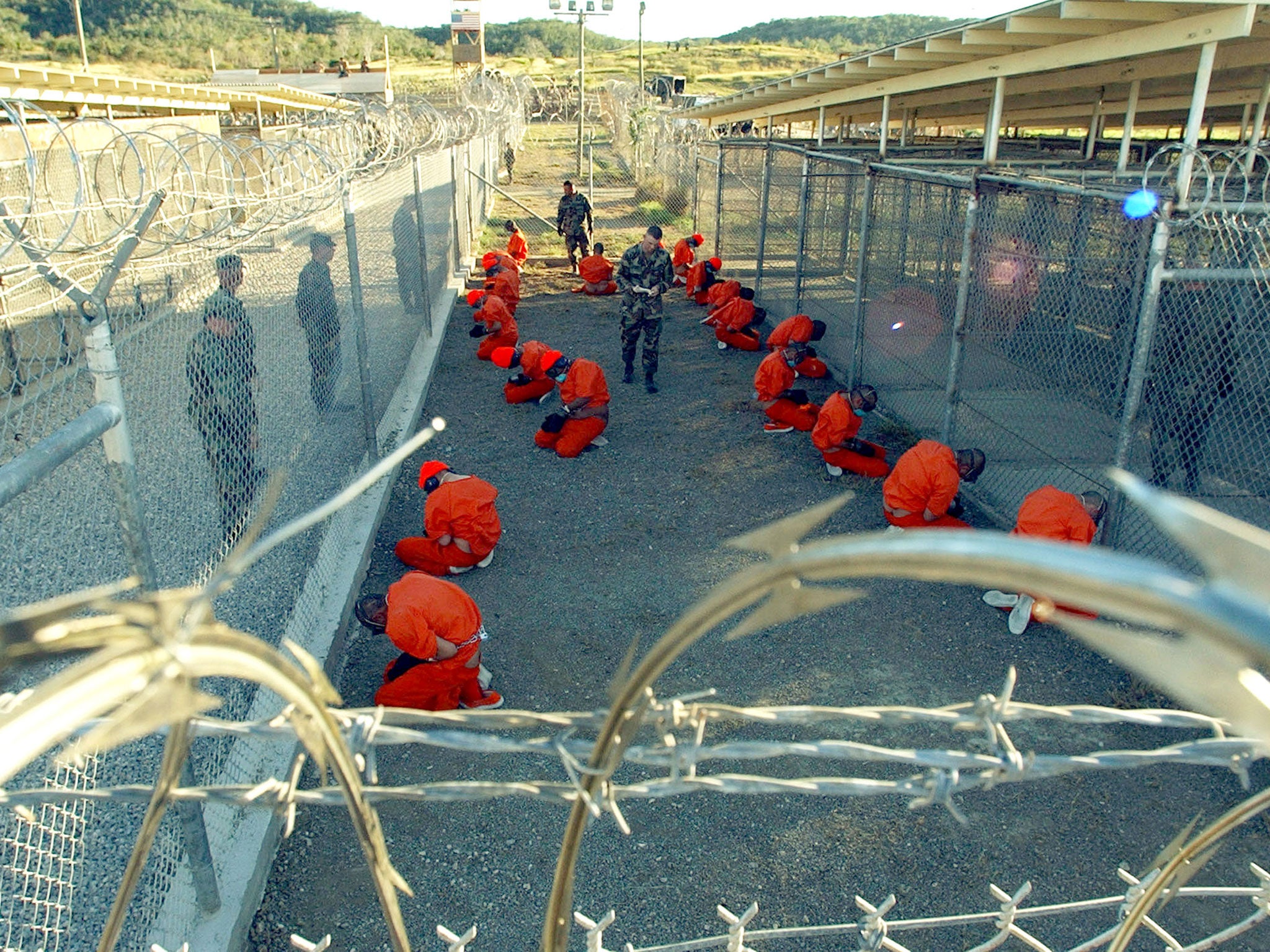When Shaker Aamer is released from Guantánamo next month, it will be a strange sort of victory for his family
The prison has almost certainly fuelled terrorism, rather than preventing it. We need to know what the UK's role was in this shameful episode

Your support helps us to tell the story
From reproductive rights to climate change to Big Tech, The Independent is on the ground when the story is developing. Whether it's investigating the financials of Elon Musk's pro-Trump PAC or producing our latest documentary, 'The A Word', which shines a light on the American women fighting for reproductive rights, we know how important it is to parse out the facts from the messaging.
At such a critical moment in US history, we need reporters on the ground. Your donation allows us to keep sending journalists to speak to both sides of the story.
The Independent is trusted by Americans across the entire political spectrum. And unlike many other quality news outlets, we choose not to lock Americans out of our reporting and analysis with paywalls. We believe quality journalism should be available to everyone, paid for by those who can afford it.
Your support makes all the difference.Over the years the campaign for justice for Shaker Aaker has seemed an almost hopeless one. Turning out with family and supporters to hand-deliver petitions to Downing Street or the US Embassy in London has been a forlorn affair, marked by an increasingly desperate sense that no-one in authority cared and no-one was listening.
Guantánamo’s prisoner #239, a man with a family, with a right to be given a proper trial or released, had apparently been cast into oblivion. Held improperly, indefinitely, interminably.
Now, after the best part of a decade and a half, news that Aamer is to be spared the perpetual detention without trial that Guantánamo represents is a strange sort of “victory” for his long-suffering family. Four children, his wife and other family and friends have been cut off from him for nearly 14 years - more than the entire lifetime of his youngest son Faris.
Meanwhile, having had to endure the psychological torture of years in a Guantánamo isolation block plus, he alleges, repeated assaults by guards, Aamer’s health has deteriorated alarmingly. To the very end the US authorities blocked efforts by his lawyers for him to be examined by independent doctors. When - hitches apart - he gets on a plane to the UK next month it will be after an unimaginable ordeal, without an apology and with little or no explanation.
And that’s what's most worrying about the saga of Shaker Aamer and hundreds of others who’ve had their lives violently interrupted by the lawlessness of Guantánamo. There’s no rational explanation for what’s happened to them.
Certainly there’s been no legal basis for Guantánamo. Spurious Bush-era arguments about it be “consistent with” the Geneva Conventions unravelled immediately. Instead Guantánamo was revealed to be a deeply irresponsible extra-legal experiment. And as a clear symbol of US injustice, Guantánamo has, as the UN expert Juan Méndez suggests, almost certainly fuelled international terrorism, not prevented it.
Shaker Aamer’s long-overdue return to Britain brings one long, painful chapter to a close (though for 113 other detainees the Guantánamo nightmare is still far from over).
The wider story, though, is not just how the United States indulged in an orgy of international kidnapping, secret detention and torture, but how its international partners aided and abetted this rampant lawlessness.
The UK’s own shameful role in this episode is still largely hidden from public view. That’s why we still need a fully-independent, judge-led inquiry into that role.
Join our commenting forum
Join thought-provoking conversations, follow other Independent readers and see their replies
Comments